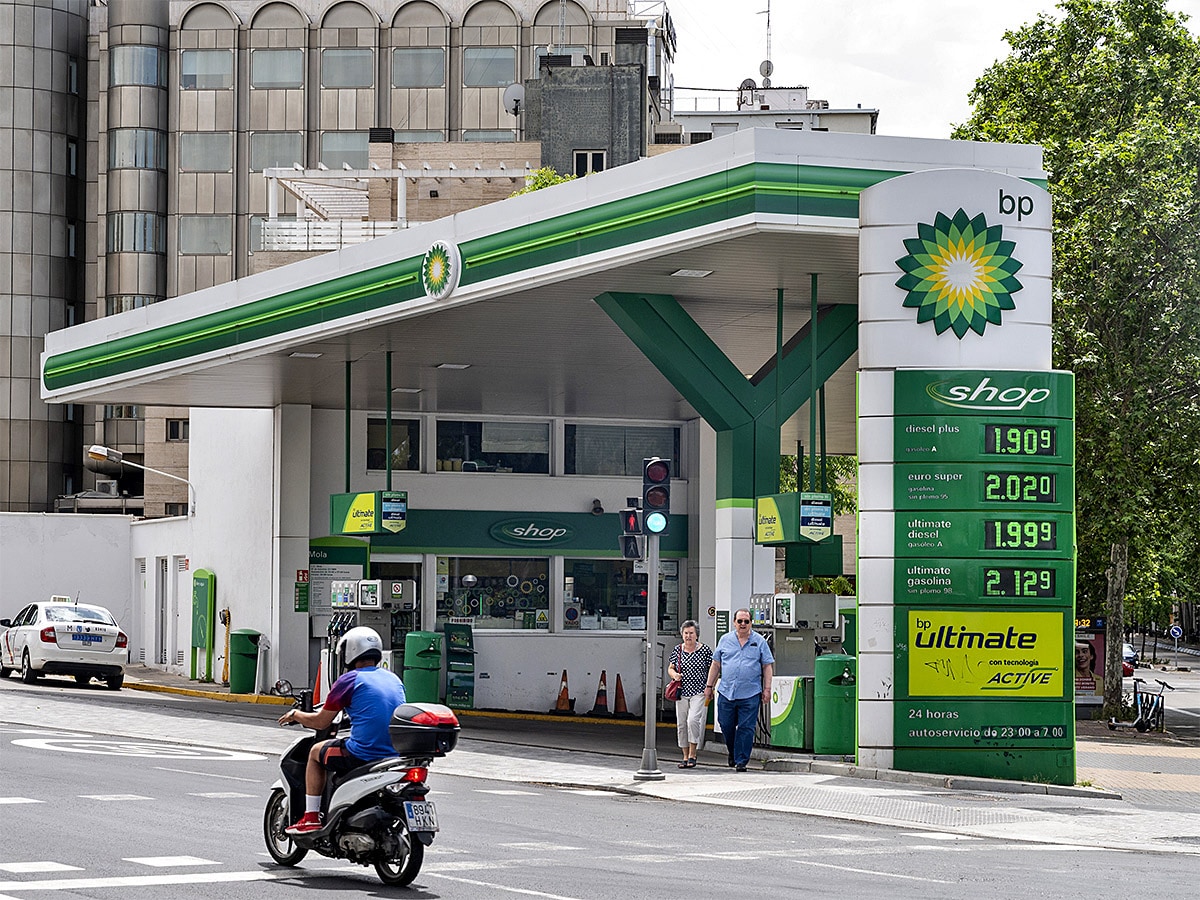Ahead of BP’s Q2 earnings results announcement on 2 August, shares in the oil major have been outperforming the broader market as rising energy prices lift investor sentiment. The company’s upcoming earnings release will come off the back of a series of record-breaking profits among oil and gas stocks.
The BP [BP] share price has outperformed the market ahead of the company’s Q2 results announcement on 2 August. Boosting investor sentiment is soaring global energy prices and the fact that its rival oil majors posted record earnings last week.
As of 29 July, the BP share price has risen 41.5% in the last 12 months and 23.5% so far in 2022 as the world grapples with higher energy prices. In comparison, the FTSE 100 has seen a 1% decline year-to-date and only a 4.8% rise in the last 12 months.
BP’s upcoming earnings report will come after supermajor peers Shell [SHEL], ExxonMobil [XOM] and Chevron [CVX] all announced record-breaking profits and large share buyback programmes last week. Shell reported record adjusted earnings of $11.5bn alongside announcing a $6bn share buyback scheme, while ExxonMobil and Chevron saw earnings of $17.9bn and $11.6bn respectively. It is expected that BP will continue this strong trend in its earnings report.
While the BP share price has outperformed major indexes so far this year, the company’s shares have fallen behind the likes of ExxonMobil. ExxonMobil shares have surged 52.5% year-to-date (through 29 July), significantly higher than BP’s 23.5%, but have outpaced the 19.5% climb from Shell over the same period.
Q1 profit strong despite Russian business write-downs
BP saw an exceptionally strong underlying profit in Q1 as energy prices began to soar. The group’s underlying replacement cost profit rose to $6.2bn in the first three months of the year which was considerably higher than the $2.63bn seen in Q1 2021.
Despite the underlying profit growth, BP still saw a final loss for the quarter as the company took a huge one-off write-down from its exited Russian businesses. In February, the company decided to divest its 19.75% stake in Russian oil producer Rosneft. This led to a pre-tax non-cash charge of $24bn for the company in Q1 and resulted in record losses of $20.4bn.
While the write-down was a one-off charge, exiting its profitable Rosneft holding has had some longer-term impacts on underlying earnings. In the final quarter of 2021, Rosneft added $745m to BP’s profit. However, this hit to earnings has been more than compensated for by soaring energy prices.
Aside from the Russian-related woes, BP provided a very strong set of results for the first three months of the year. The group was able to expand its share buyback programme to $2.5bn after already completing $1.6bn in buybacks at the beginning of the year. Alongside this, net debt was brought down to $27.5bn from $30.6bn at the end of 2021. BP shares rose over 5.7% on the back of this strong set of results released on 3 May.
Analysts remain positive as BP safeguards its future
The company’s earnings report comes as BP aims to cement itself as a key player in the global clean energy shift. Back in mid-June, BP announced a 40.5% investment in an Australian solar, wind and hydrogen project called the Asian Renewable Energy Hub (AREH). The company is shifting towards renewable energy production and plans to cut emissions to net zero by 2050. BP plans to go on a major spending spree and build or acquire 50GW in renewable power generators by 2030 — a long way off the 1.9GW it had at the end of 2021.
As its fossil fuel divisions remain extremely profitable, BP faces a major challenge in facilitating a shift towards renewable energy without neglecting its highly profitable hydrocarbon business. However, there is no doubt that a shift towards renewable energy will help BP safeguard its position as a key energy player well into the future.
Analysts share a very similar outlook on BP shares. Out of 28 analysts polled by the Financial Times, five rated the shares a ‘buy’, 15 ‘outperform’, seven ‘hold’, and only one ‘underperform’. Out of 22 analysts offering a 12-month price target for the shares there was a median target of 500p — a 25% premium on the 400p the shares traded at on 29 July close.
Disclaimer Past performance is not a reliable indicator of future results.
CMC Markets is an execution-only service provider. The material (whether or not it states any opinions) is for general information purposes only, and does not take into account your personal circumstances or objectives. Nothing in this material is (or should be considered to be) financial, investment or other advice on which reliance should be placed. No opinion given in the material constitutes a recommendation by CMC Markets or the author that any particular investment, security, transaction or investment strategy is suitable for any specific person.
The material has not been prepared in accordance with legal requirements designed to promote the independence of investment research. Although we are not specifically prevented from dealing before providing this material, we do not seek to take advantage of the material prior to its dissemination.
CMC Markets does not endorse or offer opinion on the trading strategies used by the author. Their trading strategies do not guarantee any return and CMC Markets shall not be held responsible for any loss that you may incur, either directly or indirectly, arising from any investment based on any information contained herein.
*Tax treatment depends on individual circumstances and can change or may differ in a jurisdiction other than the UK.
Continue reading for FREE
- Includes free newsletter updates, unsubscribe anytime. Privacy policy





